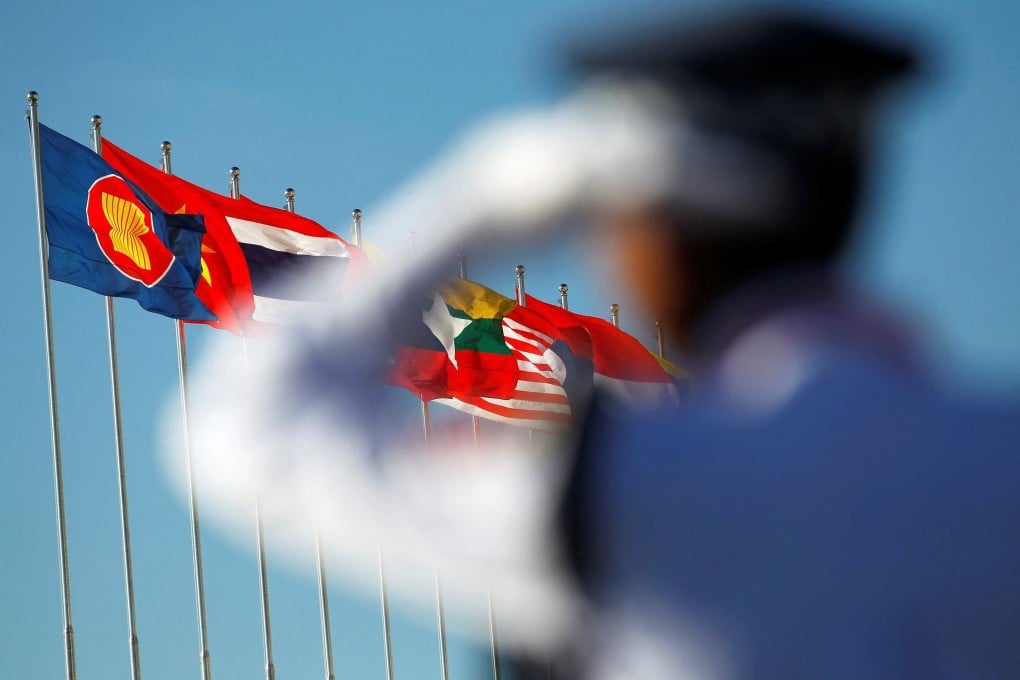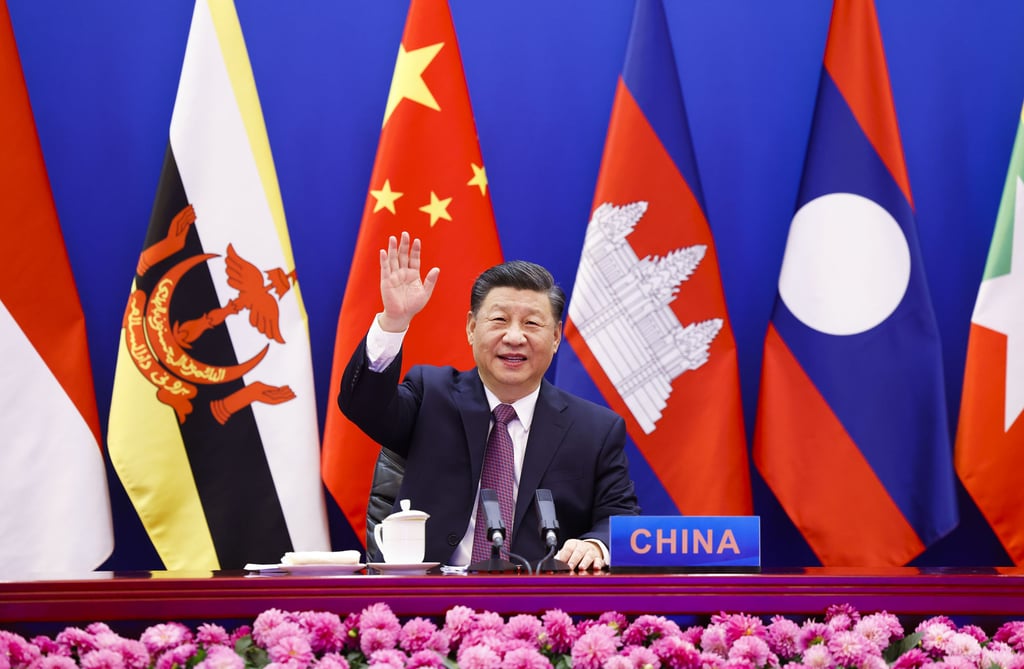Southeast Asia’s trust in China, US improves but more believe Asean needs to choose sides: survey
- Confidence in Japan fell in this year’s survey by ISEAS-Yusof Ishak Institute; Myanmar, the Philippines and Singapore have ‘palpable’ levels of distrust towards Beijing
- Amid US-China rivalry, the belief that it would be impractical for Asean to remain neutral and it would have to choose sides has gained traction

Confidence levels rose in particular in Myanmar and Thailand, where correspondingly, trust in Japan also fell. Trust in China improved overall, with 26.8 per cent of respondents saying they were confident or very confident Beijing would contribute to the global good, up from 19 per cent last year.
But the survey, done by ISEAS-Yusof Ishak Institute, a Singapore government-affiliated think tank, also uncovered variations in the overall trend among specific countries. For example, there were “palpable” levels of distrust towards China in Myanmar, the Philippines, Singapore, Brunei and Vietnam.
For Myanmar in particular, the State of Southeast Asia 2022 report said the surge in trust in the US and sharp decline in trust in China could be explained “in light of its own political crisis and hopes for resolution and leadership” from external powers like the US.
On the overall dip in trust in Japan – which has ranked as the most trusted major power for Southeast Asia since the survey began in 2019 – the researchers pointed out that Japan’s strategic engagement with Asean countries had not changed in the past year.

Face-to-face engagement between leaders though was limited “as compared to the higher-level touch point that Asean has had with China, in large part due to President Xi Jinping making his first ever attendance at the Asean-China special commemorative summit”, the researchers said in their report. Confidence in Japan fell from 68.2 per cent to 54.2 per cent this year.
More than half of the 1,677 respondents from 10 Asean states said China continued to be seen as the most influential political and strategic power in Asean, compared to three in 10 who selected the US. Respondents came from government, academia, think tanks, research institutes, civil society, media and the private sector, with most living in the Philippines, Myanmar and Singapore.